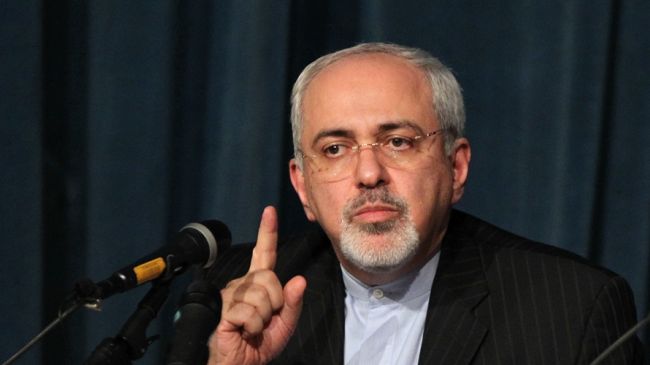I hate calling Daesh an Islamic State, because it is neither Islamic, nor a government, said Iranian Foreign Minister Mohammad Javad Zarif on Sunday.
Speaking in Davos in a Geopolitical Outlook Panel Discussion at the World Economic Forum, attended by the German defense minister, the South Koran foreign minister, the Vietnamese foreign minister and the executive director of the German firm Henkel, Zarif made the comment in response to a question: What measures are necessary to block the path of the Islamic State of Syria and the Levant (ISIL).
‘Our problem in the region is extremism which has roots in occupation, suppression, and deprivation from natural rights. We need to encounter it, whether we like it or not, as this is a serious crisis in the region,’ said the Iranian foreign minister.
As for the word “Daesh”, he said that in Arabic and Persian languages that word is used to name them, but in the West the Islamic State is used, which he said he does not like.
Zarif then discussed the ways to encounter ISIL and said that efforts to fund the terrorist group should be stopped, adding that the terrorists are used as an instrument in geostrategic games only to exert hegemony in the region.
Multidimensional, solid anti-Daesh strategy needed
The Iranian top diplomat went on to say that some think they can make use of Daesh as an instrument in a short-term tactical game and as a tool against certain governments, adding this mindset does not help.
Acting against ISIS cannot be limited to air raids, he said, adding that a multidimensional, solid strategy against Daesh is needed to uproot the terror group.
2015 challenge: Threat of Cold War era
Zarif said that the world is facing two major security challenges – a return to the Cold War era and the geopolitical competitions of that era.
‘Extremism and the ways to encounter it is one of our major challenges as we see extremism in the Middle East and in Europe. What is to be done? Extremism cannot be encountered by ignoring it, as it is a very perilous threat,’ he said.
The Iranian foreign minister also expressed deep concern about the European sacrilege of religious values, especially Islam, adding it has become a commonplace practice and will lead to escalation of extremism and will deprive many people of their rights.
